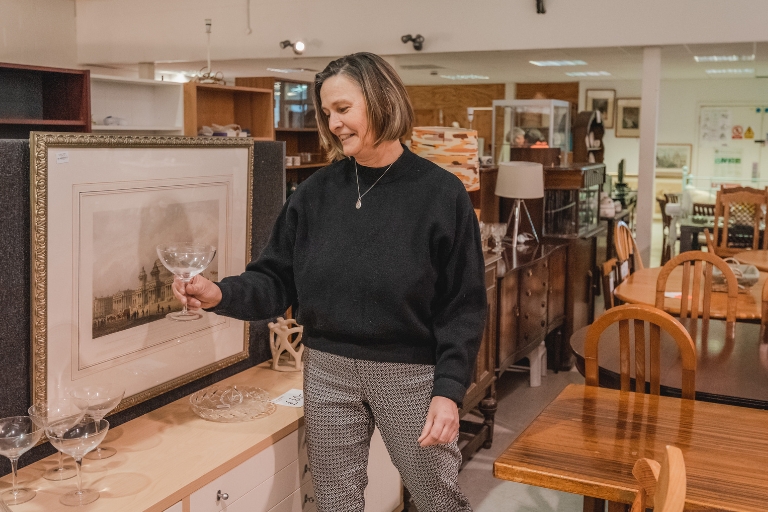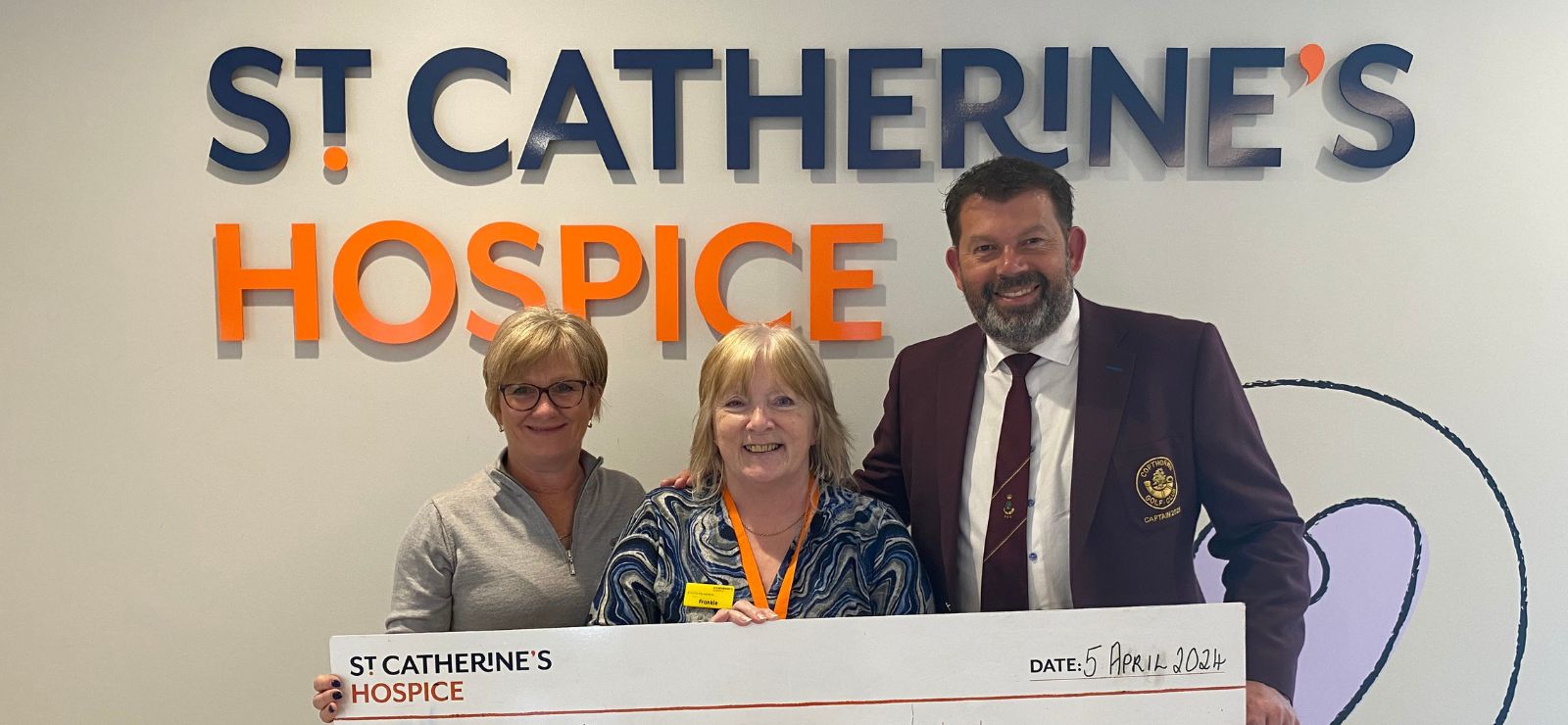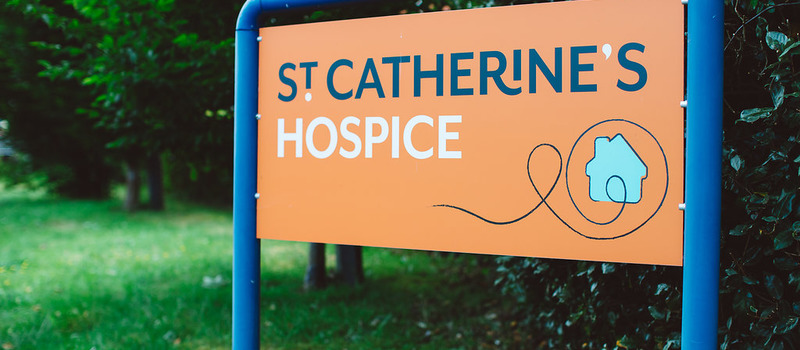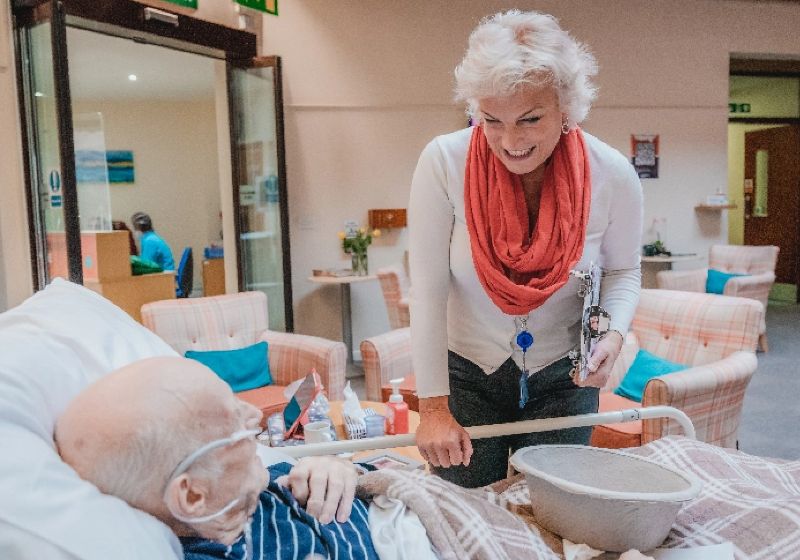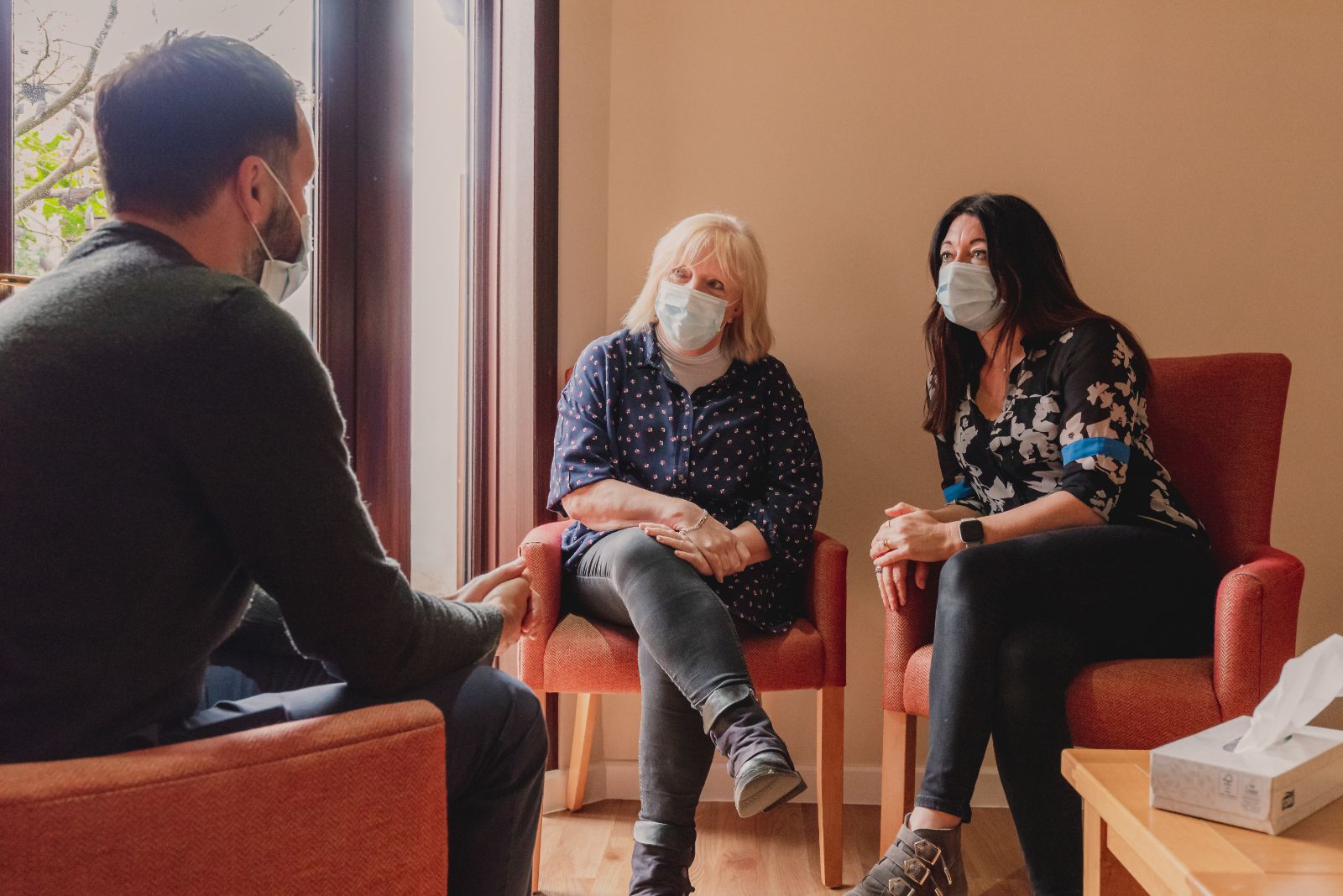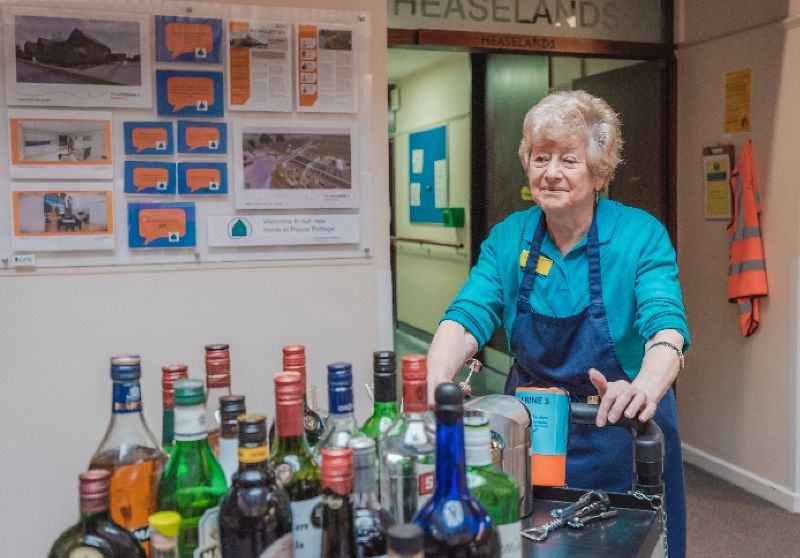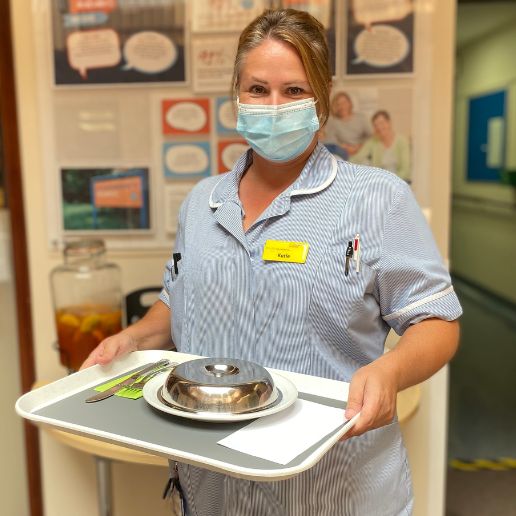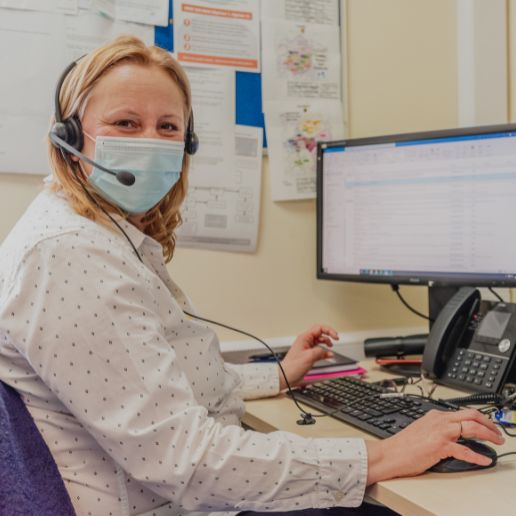“The hospice isn’t a conveyer belt to the afterlife”
58 year old Stephen Osborn spent time on our wards earlier this year. Here he shares his experience.
“On 22 September last year I was told I had pancreatic cancer
A tumour in my pancreas had spread and because of that it was inoperable and, therefore, terminal. That’s very common with pancreatic cancer, it’s something that creeps up on you. You don’t know you’ve got it often until it’s too late.”
Stephen says since his diagnosis his ambition has been to stay as well as he could for as long as he could, and to make more time for himself so he can tick off some boxes
“Since I had my diagnosis, I’ve done wonderful things”, explains Stephen, “including a long weekend in Venice. My daughter took me flying along the South Coast in a light aircraft too.”
When Stephen was first linked in with St Catherine’s he admits he didn’t know much about the hospice
“As my condition worsened, I sought some help on the telephone on a few occasions. Then one weekend my pain was really bad I came to the hospice to try and stabilise my pain and to adjust my medication to cope with it”
Stephen admits he felt “apprehension” over coming into the hospice and worried about not coming out again
“Once when I was thinking about coming here I didn’t because I thought it was just a one-way system,” explains Stephen.
“It’s not the sort of place you think you’re going to go and have a good time. The word hospice automatically leads you to believe it’s a place to be avoided but it’s been wonderful here. It’s not a conveyer belt to the afterlife, it’s a place where people are vibrant and happy and there’s a real sense of community
I’m amazingly surprised at how patient focussed the hospice is. As a patient you’re put first in everything and you know you’re not alone. The staff really take trouble to listen to what you’re saying and to accommodate you.
Medically the hospice really helps too
Some of my initial thoughts about coming here were to try and readjust my medication because I was still in pain. We’ve tried lots of new things during my stay including different sorts of medication and administering it in different ways. I leave tomorrow to go home with a plan about the future and the offer of telephone help or returning here if I have to.”
During his time at the hospice Stephen’s cancer rapidly spread so the hospice supported his three children – his 29 year old son, his 28 year daughter and his 23 year old daughter by answering their questions about his illness
“I’d been at the hospice for a week when it became obvious my cancer had progressed,” explains Stephen, “so one of the hospice doctors, very kindly put some time aside so my two children who are in the UK could come here and speak with her. My other daughter, Sarah, who recently got a new job in Finland, joined us on a video call so she could be included in the conversation.
The hospice put a room by as I wanted to have the facility for my kids to be able to ask anything they wanted. This whole thing is a bit of a shock to me, so in a way, it’s more of a shock to them. The way the conversation was handled was very sensitive and very helpful and questions were answered clearly. It was very open, and we spoke plainly – I think you have to do that when you have a diagnosis like I’ve got. There’s nothing to be gained by avoiding the issue”
Whilst he’s looking forward to going home Stephen admits he’s “a bit apprehensive about leaving as the hospice is a safety net”
“When I’m here I can push a button and in 30 seconds someone’s here asking me what I want. I can ask for anything from an ice cream to pain medication. That support is something I don’t get at home,” says Stephen. “But it reassures me knowing I can call the hospice or turn up physically to ask for help if I need it” he adds.
Stephen says one of the biggest differences between the hospice and a hospital is that the care at the hospice revolves around him
“In a hospital I feel that I’m locked into their regime, but the entire time here has revolved around my needs. I’ve had daily visitors – from friends in the area to family, which has allowed me to have people around me to support me as I would at home.”
Stephen feels the word hospice isn’t accurate for how St Catherine’s really is
“I’d urge people to disregard the word hospice and forget about the stigma the word has, and look more in terms of the medical care and support that’s available here,” says Stephen. “Reflecting on my own reasons for coming here, ultimately there’s a good chance I’ll end up here when I’m less well, so this was a chance for me to experience the place on a different level. I feel much more comfortable about coming back now.
There’s such a feeling of community – there’s an ethos around the place, and the atmosphere is very strong and amazingly positive”
Stephen says he didn’t expect the hospice to have such nice spaces
“There’s not that sombre atmosphere you’d expect when people are unwell in different rooms,” explains Stephen.
“It’s not formal and quiet. You hear grandchildren laughing in the corridors and families coming together when they visit. The gardens are amazing too. I’ve often gone outside as it’s a really great space to spend time in. I didn’t expect the hospice to have gardens or to have such a nice space in terms of having a room to myself with an ensuite bathroom and a view over the gardens. I video called one friend and he said it’s more like a health spa than a hospice!”
Stephen says a hospice isn’t something people are really aware of until they or a family member need it
“I’ve said to my kids I wish I knew St Catherine’s existed before I needed it because I would have gladly given some time and effort to volunteer here. Having been part of the community I’m really happy to advertise the hospice and to invite people to come and be part of it themselves.”
If you would like to read more people’s experiences of hospice care please click here or to make a donation so we can help more families in future please click here or call 01293 447361.


